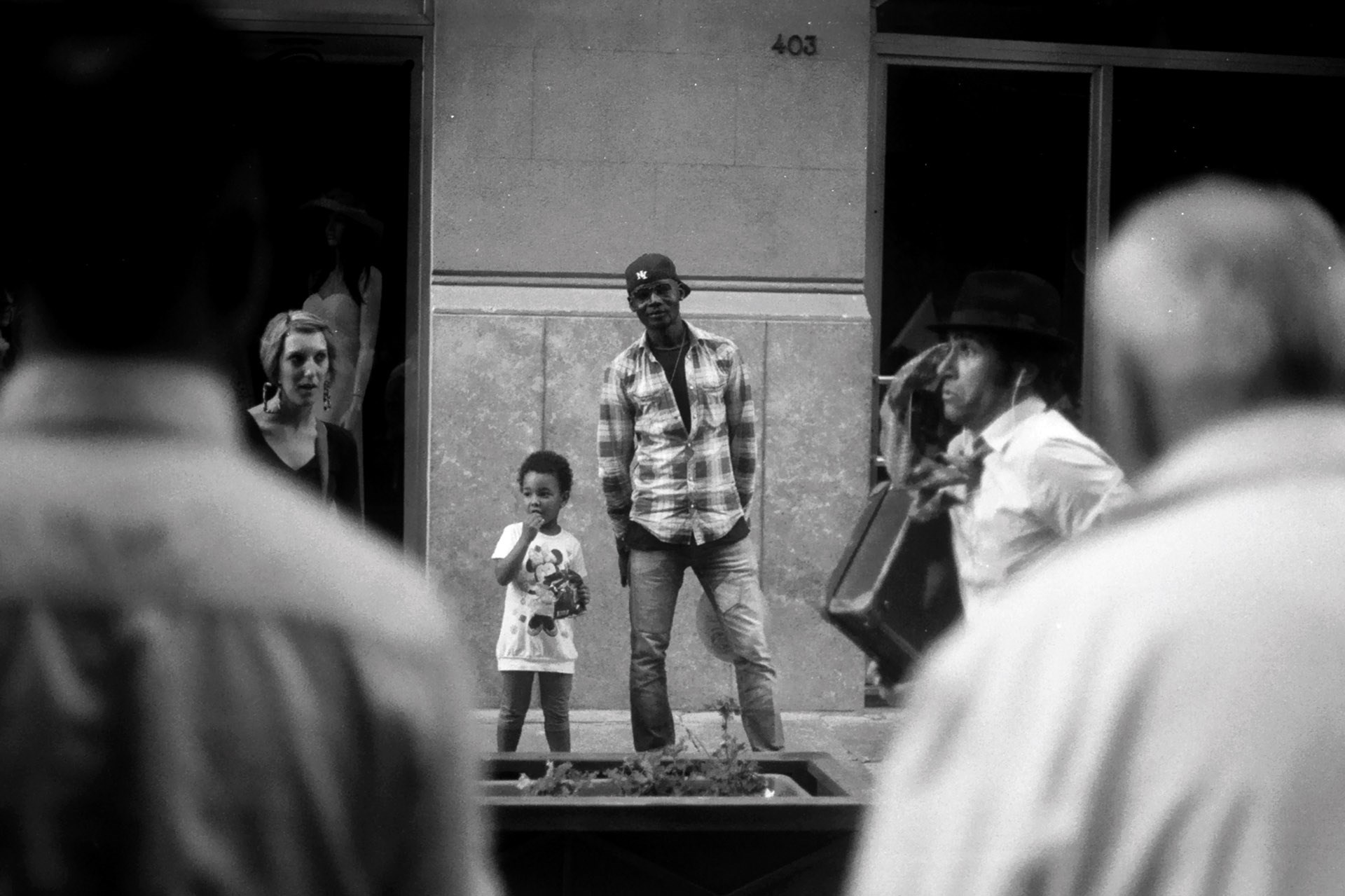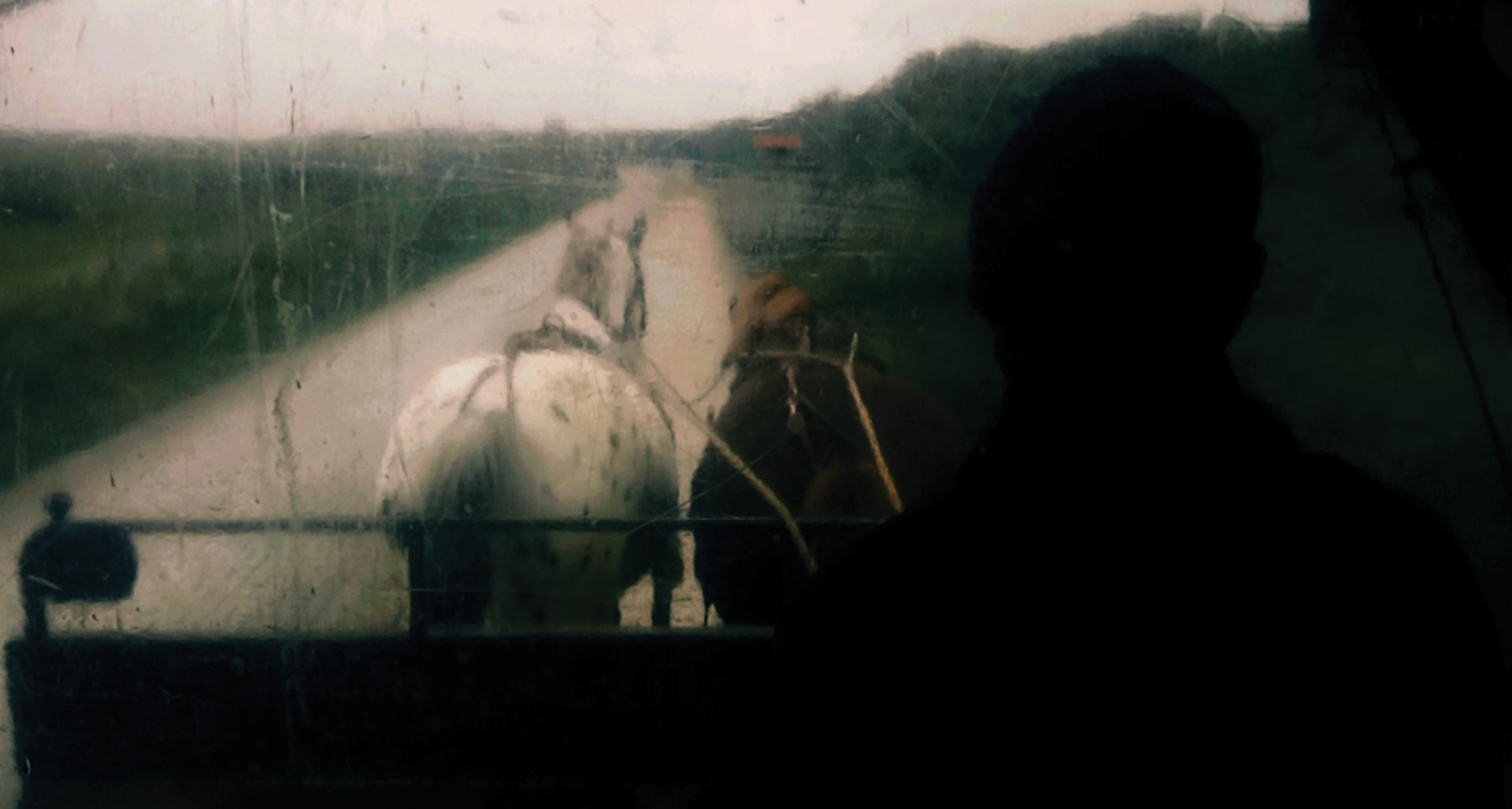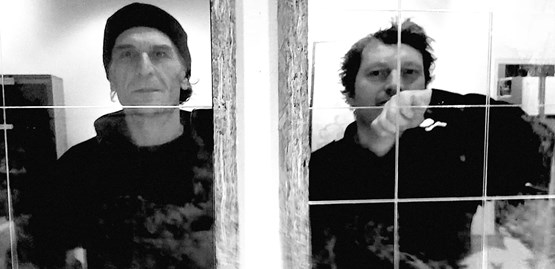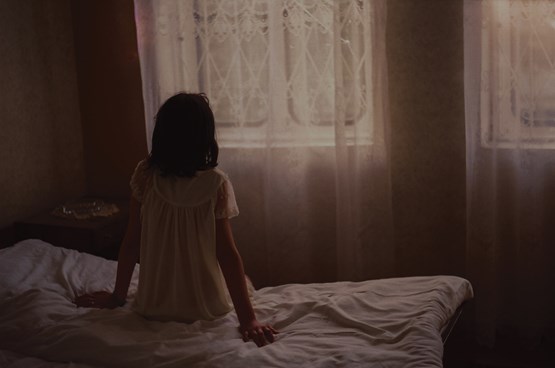
Fear as a Political Factor
17.03.2022 | 10 Min to readFear has a bad name. People hold it back, suppress it, and are ashamed to show it. “Coward,” “wimp,” “sissy” are some of the terms describing human weaknesses, despite the fact that this echo of the heroic past sounds in the contemporary world like an anachronism even on a rhetorical level. In terms of relevance, it has been eclipsed by such psychologically motivated forms of fear as phobias: arachnophobia, musophobia, acrophobia, aviophobia, or claustrophobia.
There are other phobias, social or cultural in character, that apply to concrete groups of people (homophobia, feminophobia, xenophobia). In rational terms, phobias are mostly incomprehensible and unmotivated. Psychoanalysis describes a whole array of such fears originating and rooted in the unconscious mind. Psychoanalysis interprets a variety of fears of more abstract nature and defines their significance in cultural or religious forms. For example, how natural phenomena (thunder, volcano, solar eclipse) translate into fear of supernatural forces, or the fear of death in concepts of the immortality of the soul and afterlife. Psychoanalysis teaches that such fears are the core nourishment for religions, though anxieties of this kind remain quite relevant even in the secular era. For modern neurotic-depressive man, fear has long become an inseparable lifelong companion, and talks about it mostly falls under the purview of medical or intellectual spheres.
There is another kind of fear that is not neurotic in character and does not relate to the supernatural either. These are everyday fears stemming from very concrete threats. They may be called existential fears, though existential here refers to biological life, not to existentialism.
The political philosophy of fear
“My mother gave birth to twins: myself and fear,” these are the first words of the autobiography by English philosopher Thomas Hobbes (1588-1679). He was born amid the panic that gripped England as the Invincible Armada of Spanish King Philip II attacked. His mother, overwhelmed with anxiety, went into premature labor. Though that time England survived the attack, it took only a few years for the country, and all of Europe, to plunge into long religious and political wars. In England, the king and the parliament engaged in a civil war that ended with the execution of King Charles I, an unprecedented event for that time followed by Oliver Cromwell at the helm, and then the restoration. Thus, the author of Leviathan and the first theorist of the social contract—whose ideas largely defined the notion of a modern state—spent most of his life in turbulent times, something that had a direct impact on his thought and the principles of state-building in the new era, with security as one of its key aspects.
Hobbes may also be called a philosopher of fear, according to whom fear is the reason and driving force behind all human feats. Fear creates religion and gods.
However, for Hobbes, who happened to live in an era of religious wars, there is one phenomenon far more fearsome that any fear caused by ignorance transformed into religion. He describes it as the natural condition of mankind. What is mankind’s “natural condition”? Pre-Hobbesian philosophic tradition was dominated by Aristotle’s concept of man as a “political animal” with his natural condition standing for membership of the polis, or citizenship, something implying law-abidance and ethical norms in him. This theory by Aristotle eclipsed the following idea formulated by Plato in his last work, The Laws: “All are at with one another, in both public and personal life, and everything is at war with itself” (The Laws I, 626c). Plato also says: “For (as he would say) peace, as the term is commonly employed, is nothing more than a name, the truth being that every state is, by a law of nature, engaged perpetually in an informal war with every other state” (The Laws I, 626a). Hobbes returns to the Platonian understanding of the natural to create his own notion of “the natural condition” encapsulated in the Hobbesian Latin formula bellum omnium contra omnes (the war of all against all). In this war, a man is a wolf to another man. This condition evokes fear, and to escape this fear mankind resorts to a kind of peace agreement, even willing to give up their natural rights, something that defines their citizenship. Fear is the root cause of establishing peace, a state, and laws and of abiding by them. A state and laws are not the natural condition of mankind, or a creation of divine origin, but an artificial creation of man, and for this creation, each pays the price of personal freedom.
Although Hobbes explains the social contract with the rationality of a human being as a reason-endowed creation—since this contract is a rational decision to overcome fear—he does not fully trust human beings, their nature, and the primacy of reason in man. And it is human nature—tending toward the supernatural condition in a degree stronger than reason can handle—that threatens the social contract. Such moments occur when human beings, for some special reason, reclaim those natural rights that they previously gave up for the sake of the social contract.
Greek historian Thucydides describes the plague devastating Athens in 430 B. C., amid the Peloponnesian War: “Nor was this the only form of lawless extravagance [anomia] which owed its origin to the plague. Men now coolly ventured on what they had formerly done in a corner, and not just as they pleased, seeing the rapid transitions produced by persons in prosperity suddenly dying and those who before had nothing succeeding to their property, so they resolved to spend quickly and enjoy themselves, regarding their lives and riches as alike things of a day.”
For Hobbes, who translated this work by Thucydides (The History of Peloponnesian War), this anomia (lawlessness)—when the law no longer rules, and therefore the social contract is terminated, and what will be later called society, sustained through adopting and embracing rules, collapses—is the most disturbing condition. People revert to their natural condition, that is, anarchy and chaos. The only means to survive under the circumstances is treachery and violence in disregard of rules and moral restraints.
Since the order achieved through the social contract cannot rely on human reason, Hobbes seeks a mechanism more robust and sustainable that the mind, something that he, again, discerns in fear, but not in the kind of fear overcoming which turns man into a reasonable being, and for which man gives up his natural desires and rights and freedoms, but a totally irrational, ignorance-motivated fear invented by man who is petrified just imagining it. This kind of fear, instead of pushing one toward overcoming it, forces people to submit to its unconditional dominion. Hobbes uses the verb to awe to express this form of fear. According to Hobbes, who was suspected of atheism, this form must transform into religious sentiments as the foundation for deference and obedience to the state: “This is the generation of that great 'leviathan,' or, rather, to speak more reverently, of that 'mortal god,' to which we owe under the 'immortal God,' our peace and defense.”
For the man-made Leviathan to work, another superhuman figure and an object of reverence must come into play. It is the sovereign wielding supra-legitimate, unrestrained power—in this, Hobbes is a theorist of both liberal democracy and dictatorship. A monarchist, for Hobbes, is the main protagonist of “enlightened absolutism,” who is above the social contract and, therefore, enjoys unlimited power. Deference for the sovereign neutralizes every other human fear and evokes a sense of security. And this sense comes for the price of limiting one’s own rights.
A state of exception
German jurist and state/law theorist Carl Schmitt, arguably the most prominent Hobbesian in the 20th century, goes even further in bringing to the fore the ties between sovereign power and the threat facing the whole country and population. “The sovereign makes a decision on a state of exception,” Schmitt’s definition of the sovereign reads. A state of exception, as an exceptional state—the German word Ausnahme, from which the term Ausnahmezustand (a state of exception) derives, stands for an exception—stands for shaking up normal living, the accepted order of things. A state of exception may come into force in response to such events as war, revolt, natural disasters, or epidemics. In an overwhelming emergency, the sovereign’s superior, overriding authority is declared to suspend constitutional order and curb chaos. “There exists no norm that is applicable to chaos. For a legal order to make sense, a normal situation must exist,” Schmitt writes. If the ultimate goal is to neutralize fears, that is, to return to normal order, Schmitt views limitations on constitutional rights and concentration of power in one person’s hands as the way to achieve that.
Unlike Hobbes, Schmitt reveals himself only when it comes to declaring a state of exception, existing only in emergency situations and blending into the woodwork under normal circumstances. However, according to Schmitt, the norm is a norm only at the expense of an exception. The necessity to have a norm derives from the absence of a norm. In other words, the creation of normative order and a state is preceded by chaos and disorder, lawlessness (anomia), and its accompanying violence and the primeval forms of struggle for survival, all of which ultimately secure the need to establish order and curb “natural” rights. The comprehension of this need to introduce such limitations gave rise to both the totalitarian regimes and democratic states in the 20th century.

The phantom of freedom
“The tradition of the oppressed teaches us that the 'state of emergency' in which we live is not the exception but the rule.”
—Walter Benjamin
The 20th century, especially its first half, is an exceptionally extreme period of world history. WWI and WWII, revolutions, the invention and use of weapons of mass destruction, international economic crises, and their accompanying phenomena, such as unemployment, famines, lawlessness, marauding, and epidemics, put mankind on the verge of physical extinction as a result of the conscious or unconscious policies carries out by human beings themselves. In the totalitarian systems arising in the first half of the 20th century, the physical annihilation of people for the sake of ensuring a better future for the population reached unprecedented dimensions. In the world, especially its Western part—ideologically divided and facing the Cold War in the aftermath of WWII—the state set the protection of human rights as its primary goal, which implied previously unknown freedoms, on one hand, and social market economy, on the other, that is, state regulations, high taxes, and labor, pension, and health insurance, also unemployment and social welfare. In contrast, single-party states limited their citizens’ rights to choose and have a political opinion, rights of conscience and religious freedoms, also banning them from traveling abroad or emigrating. A socialist state turned into a system of total control unable to accept a different opinion. Along with the growing corruption and shadow economy in the final decade of the Soviet Union, the economic conditions of most of the population worsened drastically to transform into popular outrage. The policies of Perestroika and Glasnost launched by president Gorbachev—which, above all else, stood for introducing freedoms of speech and expression—put the Soviet Union on the fast track to collapse and accelerated the collapse of the Socialist Bloc, instead of reforming the Soviet Union. By ending the Cold War, and dismantling the soviet system, the world found itself facing new global chaos instead of enjoying new world order. Most of the former soviet republics plunged into an economic collapse, with the addition of armed conflicts, civil wars, or ethnic cleansings cutting a wide swath through various regions like the Caucasus, the Balkans, Transnistria, and Central Asia. The West, after emerging victorious from the Cold War, wound up facing an onslaught of immigrants, only to remind everyone of the period after WWII.
People in “conflict regions” seemed to have found themselves in the Hobbesian natural condition. Violence, starvation, homelessness, and exile became a norm in the 1990s. Along with the collapse of the socialist economy, manufacturing and agriculture were put on hold, and transport and communications systems deteriorated, while inflation and unemployment skyrocketed to reach unprecedented heights—according to the Gini index, the growth of Georgia’s market income inequality is as follows: 22 in 1981, 28 in 1989, 38 in 1991, 48 in 1997, and 52 in 2009. Newly established and liberated states found themselves in a premodern, pre-indoctrination era, with the addition of terrorism, foraying armed gangs, and lawlessness (anomia). Given these circumstances, fear became a mode of existence. Stability was actually the only uncontested political slogan intended as a precondition for ensuring security and overcoming the fear of existence.
The population, after having survived the hopelessness of the 1990s through natural selection, set out to build a new political system at the dawn of the 21st century. The generation nourished by the 1990s and closely acquainted with social vandalism—consciously to some extent, but mostly consciously—chose libertarianism, the system it was best adapted to. This economic and political movement embraces personal freedom as the supreme value (from French libertaire: freedom-loving) and preaches minimization of the state and regulations, unlimited entrepreneurial freedom, and a self-regulating market. Emerging in a neoliberal form in the Western world of the 1980s, this political and economic ideology spread rapidly across Europe and the former soviet states immediately after the end of the Cold War. In the West, where neoliberalism encountered s social state, reforms focused mainly on reducing social expenditure. In the post-soviet countries, however, this political and economic system started building on the foundation of a ruined economy and social inequality rooted as early as the soviet period. Those amassing wealth amid the chaos in the post-soviet space of the 1990s—those known as oligarchs—were offered a unique opportunity to lay their hands on the country’s wealth by capitalizing on rapid privatization announced by the state. In 2010, Georgia, in terms of income inequality, ranked 1st in the region. The already existing social gap between a small group of the wealthy and a vast majority of the population assumed legal and ideologically justified forms in 21st-century Georgia, as well as in almost every post-soviet state.
In self-regulated market ideology, which holds profit as the only value, freedom stands not for liberation or the emancipation those unfree, but for the right to do anything enjoyed by a small portion of society, anything that brings more benefits to this group. Freedom for maximal profits at minimal cost. And this profit is achieved at the expense of cheap workforce, appropriation of the country’s natural resources, and artificially marked-up market prices, something that eventually results in the impoverishment and economic/political enslavement of a lower- and middle-income majority. Accordingly, freedom in neoliberal discourse stands for a spruced-up modern version of the Hobbesian natural condition boosted by PR technologies and indoctrination. This version calls for a permanent state of exception, institutionalization of an exception as a norm, in which the sovereign is replaced with big capital. Under extreme circumstances, fear also grows stronger to force the lower-income strata of the population to acquiesce to degradingly low wages and hard working conditions, to accept an inadequate increase in prices of essential everyday products, and, driven by despair, to sacrifice their last pennies on the altar of emigration or, more likely, social declassing by dreaming of a better future, or gambling away everything altogether. The ongoing pandemic, with its accompanying threats to life and health, has exposed the wickedness of neoliberal order with utmost clarity, when—amid overwhelming impoverishment and panic—it caused a drastic increase in the revenues of the superrich, with the wealth of billionaires throughout the world up by as much as 9.6%. This system has made its presence felt in failed states like Georgia in its ugliest form, with the profits of banks, casinos, pharmaceutical and medical businesses matched by the economic devastation and political nihilism of most of the population. In 2020, the capital flows of the gambling industry made up 32,091 billion GEL. Amid high inflation in the first half of 2021, the profits of two banks: TBC and Bank of Georgia alone reached one billion GEL. Prices on some medications and medical services have grown by 27% and 33%, respectively. Given the growing prices and profits, as early as the end of 2020, some 21.3% of Georgia’s population found themselves below the absolute poverty line. The developments triggered by the pandemic have forced the societies of developed countries to reevaluate the notion of freedom and consider the necessity of returning the state to its social roots. But most of the populations in underdeveloped countries, and countries in the process of successful self-colonization, are left with nothing but fear in their hands.
Photo: Mano Svanidze

We Recommend





